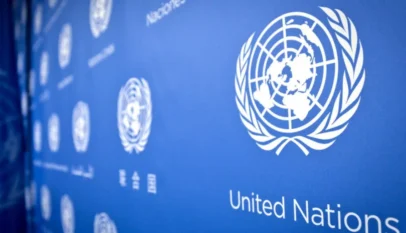By G.T. Addey (Agolokorobosin)
The recent suspension of Senator Natasha Akpoti-Uduaghan has ignited a national debate, raising concerns about legislative overreach, gender dynamics in Nigerian politics, and adherence to the rule of law. Although Akpoti-Uduaghan’s suspension followed her accusation of sexual harassment against Senate President Godswill Akpabio, the Senate asserts that it was based solely on her violation of house rules, not as retaliation for her claims. This raises important questions: Was this an act of political persecution, or was it a justifiable enforcement of legislative discipline?
When the Accused Judges the Accuser: The controversy began when Senator Akpoti-Uduaghan accused Senate President Akpabio of sexual harassment—an explosive allegation that should have been handled through an independent investigative process. However, instead of investigating the claim, the Senate swiftly disciplined Akpoti-Uduaghan, fueling suspicions of political motivation.
The Senate, on its part, insists that the suspension had nothing to do with the allegation against Akpabio but was a response to her breach of house rules. If true, the timing of the suspension—occurring shortly after her accusations—raises valid concerns. The perception of bias is further strengthened by the fact that Akpabio, as Senate President, wields significant influence over Senate proceedings, making it difficult for any disciplinary action against his accuser to be seen as completely impartial.
Due Process or Retaliation? The Senate has the constitutional authority to enforce discipline among its members. Legislative houses operate based on established rules, and when those rules are broken, consequences are expected. If Akpoti-Uduaghan violated these rules, the Senate had the right to act. However, how this was carried out raises questions about fairness and proportionality.
Her legal counsel, Victor Giwa, has argued that the Senate Committee on Ethics and Privileges violated a court order that restrained it from taking further action on the matter pending the determination of a motion on notice. If true, the Senate’s action was not only politically questionable but also legally flawed. The rule of law demands that institutions respect judicial decisions, and any defiance of a court order undermines the very fabric of Nigeria’s legal system.
A Question of Balance: Who Has the Power to Suspend and Recall? This case highlights a fundamental flaw in Nigeria’s legislative process: while the Senate can swiftly suspend a senator, the electorate—who voted them into office—face an arduous process to recall their representative. This contradiction weakens the principle of democratic representation.
If the Senate truly acted in the interest of legislative discipline, then it should support reforms that make it equally easy for constituents to recall a senator who has lost their confidence. Otherwise, the power to suspend risks becomes a political tool, wielded selectively rather than applied fairly.
Stripping Security and Suspending Allowances: Justice or Retaliation?
Beyond the suspension itself, the Senate took additional punitive actions:
- Stripping Akpoti-Uduaghan of her security aides.
- Banning her from the National Assembly premises.
- Prohibiting her from identifying as a senator during her suspension.
- Withholding her allowances for six months.
These measures extend beyond disciplinary action and expose her to security risks, especially in a country where politicians face genuine threats. Suspending a senator is one thing, but deliberately removing her security protection is another matter entirely. If security aides are provided for the safety of lawmakers, then their removal as a form of punishment could be seen as reckless rather than just disciplinary.
Similarly, denying her allowances for six months raises questions about fairness. Senate allowances are meant to facilitate legislative functions, and while a suspended senator may not actively participate in chamber proceedings, they still have a responsibility to their constituents. Financial penalties must be fair: if a senator’s allowances can be withheld for disciplinary reasons, the same should apply to those facing corruption charges or serious misconduct.
Gender and Power: Silencing Female Voices?
The fact that a female senator has been removed under questionable circumstances fuels an ongoing debate about the treatment of women in Nigerian politics. Women in leadership positions often face greater scrutiny and harsher penalties compared to their male counterparts. While legislative discipline is essential, the Senate must ensure its actions do not reinforce gender biases.
The suspension of a female senator shortly after she accused a powerful male leader of misconduct, coupled with the Senate’s decision to revoke her security, creates a perception—whether intended or not—that female politicians who challenge the status quo can be sidelined or punished disproportionately.
The Need for Institutional Reforms: The Natasha-Akpabio controversy reveals deeper issues within Nigeria’s legislative system:
- Transparent Disciplinary Measures: The Senate should establish clear, independent procedures for handling disciplinary cases to prevent perceptions of bias and political retribution.
- Strengthening Electoral Accountability: If the Senate can suspend a member so easily, then voters should also have a simplified recall process for senators who have lost public confidence.
- Separation of Powers and Judicial Respect: The Senate must ensure that its actions do not violate court orders, as this sets a dangerous precedent for undermining the judiciary.
- Security Should Not Be Used as a Weapon: Regardless of political conflicts, the safety of all lawmakers must be a priority. Security details should not be stripped away as a punitive measure.
- Fair Application of Financial Penalties: If a senator’s allowances can be withheld as a disciplinary measure, then the same standard should apply to senators facing corruption allegations or other serious misconduct.
Conclusion: A Test for Nigeria’s Democracy At its core, this case is not just about Akpoti-Uduaghan or Akpabio—it is about the integrity of Nigeria’s legislative process. While it is important to uphold discipline in the Senate, it is equally important to ensure that disciplinary actions are not perceived as tools of political persecution or gender bias.
If Senator Akpoti-Uduaghan truly violated house rules, then the Senate was within its rights to act. However, the broader context—her allegations against Akpabio, the violation of a court order, and the harsh additional penalties—creates an impression of selective justice. The Senate must be careful not to allow its internal politics to erode public trust in its fairness and accountability.
Ultimately, the outcome of this case will be a litmus test for Nigeria’s democracy. Will the Senate uphold due process and fairness, or confirm suspicions that legislative power is used to silence opposition? Time will tell, but the need for reform is undeniable.
G.T. Addey (Agolokorobosin) wrote from Ogbe Quarters, Ode-Itsekiri, Big Warri.




































